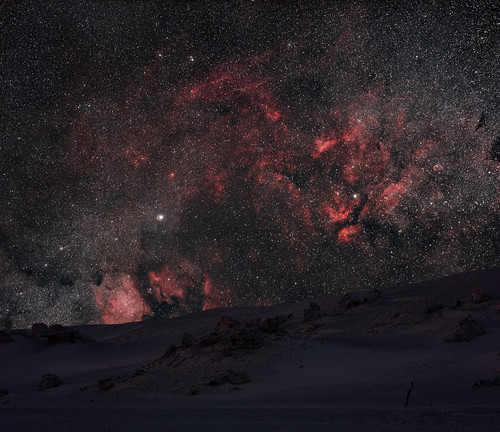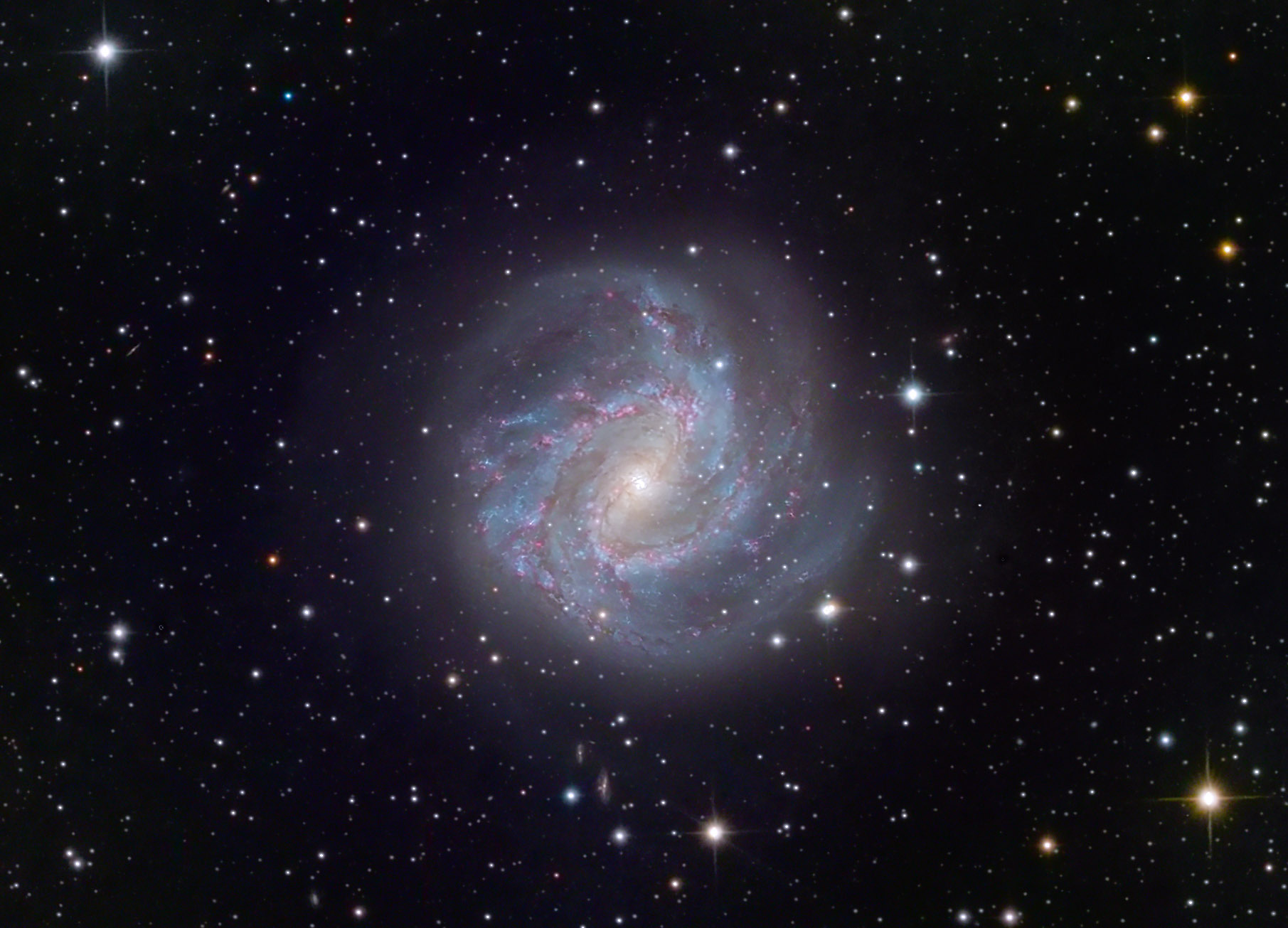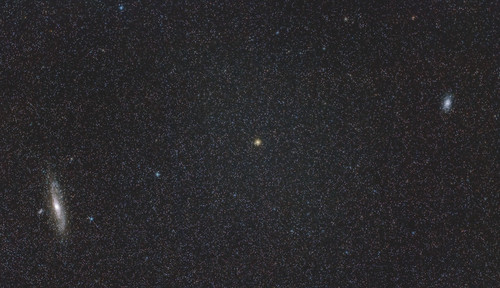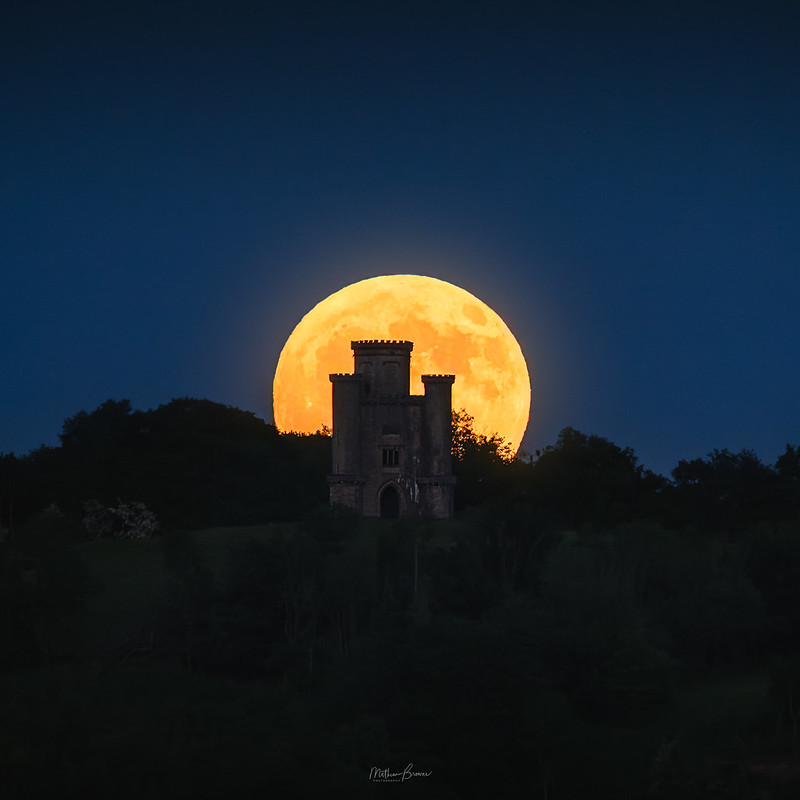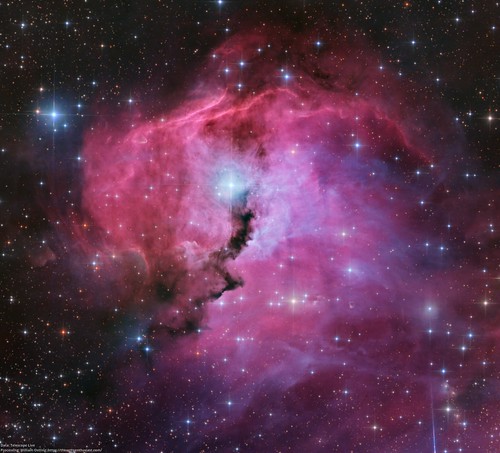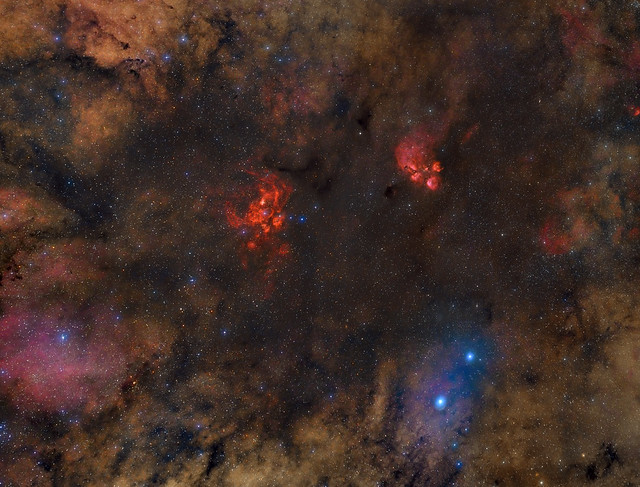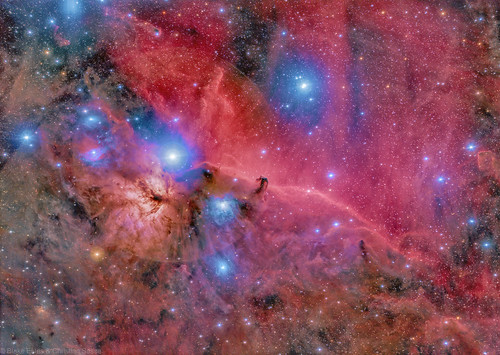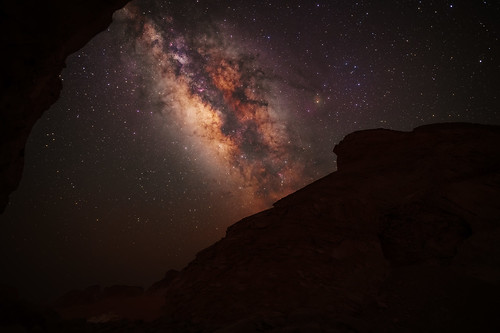 A 3-panel mosaic of dust in the Chamaeleon region
A 3-panel mosaic of dust in the Chamaeleon region by
William Ostling, on Flickr
This was one of the most difficult images that I’ve had the pleasure of processing, but I really think that the end result was worth all the trouble. Telescope live doesn’t really filter the data they publish, so most of the data I end up with is really hard to work with. This has an upside, though – I get a lot better at handling sub-optimal data! These datasets also weren’t meant to be a mosaic, so I had to do a lot of bludgeoning using photometric mosaic to create something that I could work with.
The way the dust and the reflection nebulae cover this entire region is just simply incredible – the sheer depth of nebulae in this region is amazing. I particuarly like the wispieness of the dust in the center of this image, and the way it’s lit by the stars around it.
The Chamaeleon complex is a large star forming region (SFR) at the surface of the Local Bubble that includes the Chamaeleon I, Chamaeleon II, and Chamaeleon III dark clouds. It occupies nearly all of the constellation Chamaeleon and overlaps into Apus, Musca, Carina and Octans. The Chamaeleon I (Cha I) cloud is one of the nearest active star formation regions at ~160 pc. It is relatively isolated from other star-forming clouds, so it is unlikely that older pre-main sequence (PMS) stars have drifted into the field. The Chamaeleon I (Cha I) cloud is one of the nearest active star formation regions at ~160 pc. It is relatively isolated from other star-forming clouds, so it is unlikely that older pre-main sequence (PMS) stars have drifted into the field. “Chamaeleon III appears to be devoid of current star-formation activity.” There are two particularly prominent nebulae associated with this area. The smaller is commonly known as the Thumbprint Nebula and the larger The Talon Nebula.
Details
Telescope: Takahashi FSQ-106ED
Camera: FLI PL16083
Filters: Astrodon LRGB 2GEN
Location: Heaven's Mirror Observatory, Yass, NSW 2582, Australia
Date of Observations: 1/26/2022, 1/31/2022, 2/3/2022, 2/5/2022, 2/8/2022, 3/4/2022, 4/4/2022, 4/5/2022, 4/10/2022, 4/23/2022, 4/24/2022, 4/30/2022, 5/1/2022, 5/8/2022,
L: 48 x 600s (8h)
R: 48 x 600s (8h)
G: 49 x 600s (8h 10min)
B: 48 x 600s (8h)
Processing: Pixinsight
Credits: Data: Telescope Live; Processing: William Ostling
Website:
https://theastroenthusiast.com/
Instagram:
https://www.instagram.com/the_astronomy_enthusiast/ Milky Way over Al Modawara Rock by Ahmed Waddah, on Flickr
Milky Way over Al Modawara Rock by Ahmed Waddah, on Flickr


